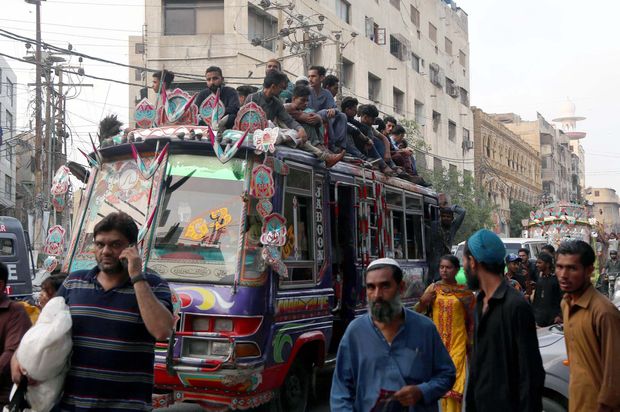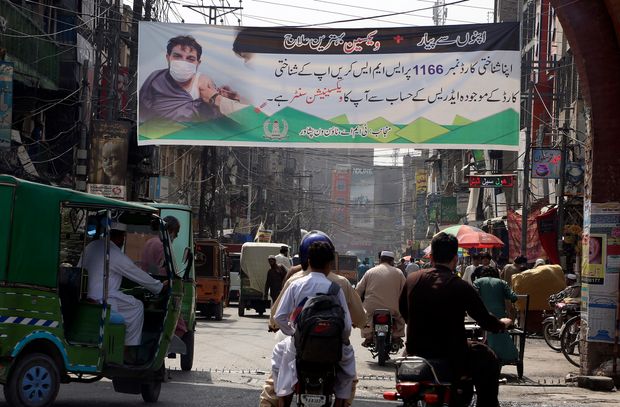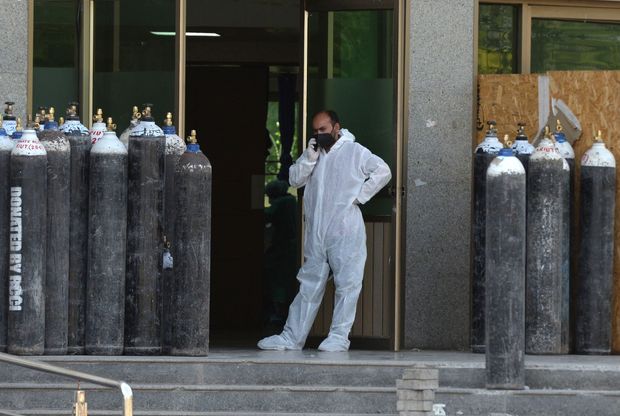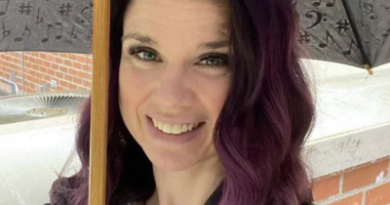In Pakistan, Saying ‘No’ to Covid-19 Vaccine Carries Consequences
ISLAMABAD—Many countries offer incentives to entice people to be vaccinated against Covid-19. Pakistan is taking a more punitive approach.
Authorities in this country of 220 million threaten those refusing to accept the shot with punishments from cutting off their cellphone connections to withholding their salaries.
The penalties contrast with the prizes being dangled elsewhere in the world. A town in the Philippines is offering people who agree to be vaccinated the chance to win a cow. Some U.S. states are holding lotteries with cash prizes, while Hong Kong is giving away a multimillion-dollar apartment.
Pakistan’s punitive measures vary by region—health services are largely the responsibility of the country’s four provinces—but the federal government has also announced penalties, all meant to prod a populace long suspicious of vaccines. Pakistan is one of only two countries where polio remains endemic, due largely to skepticism about the polio vaccine.

Nearly two-thirds of Pakistanis believe the threat from the coronavirus is exaggerated, according to surveys, as reflected in unmasked and undistanced people in Karachi last month.
Photo: PPI/Zuma Press
Haider Ali, a 26-year-old car mechanic in the capital, Islamabad, said he wouldn’t take the Covid-19 vaccine and isn’t sure the coronavirus even exists.
“I’ve never worn a mask. I meet a hundred people a day and nothing’s happened to me,” said Mr. Ali, who has one child. “If they force us to take this vaccine, that means there’s some hidden reason behind it. It seems like a high-level conspiracy.”
Pakistan has struggled to obtain an adequate vaccine supply, like many developing nations. It has taken delivery of 16 million doses, mostly purchased from China, and administered some 13 million, so the country’s 125 million adults couldn’t get vaccinated even if they all came forward immediately. But the pace of vaccination is rising, with 2.3 million doses administered last week.
Pakistan’s health minister, Faisal Sultan, said the government aims to acquire an additional 90 million doses and immunize more than half of adults by the end of the year. The country is in talks to acquire more Chinese vaccines, as well as Russia’s Sputnik V and the vaccine from Pfizer Inc. and BioNTech SE.
Dr. Sultan said the federal government’s first priority is to inform people of the need to be vaccinated: “The most important lever is communication and education and removing of doubts.” Requiring that people be vaccinated would be a last line of defense, he said, though provinces have the power to make their own policies.

Pakistan’s low immunization rate leaves its population vulnerable if a new wave strikes. A banner pitched Covid-19 vaccination in Peshawar, Pakistan, this month.
Photo: Muhammad Sajjad/Associated Press
The government said earlier this month that vaccination would be mandatory for all public- and private-sector employees. It set an end-of-June deadline for the former, but hasn’t fixed one for the latter—or said how the mandates will be enforced. Those aged 50 and older who haven’t been vaccinated won’t be allowed to travel to the mountains in the north, a popular way to escape the summer heat.
Anyone over 18 years old can now be vaccinated in Pakistan, but so far, only around 6% have had the first shot, official figures show. That compares with over a quarter of the people of Brazil, whose population is about the same size, and more than half of Americans, according to Our World in Data, a project of Oxford University.
While Pakistan has had a relatively mild pandemic—22,000 deaths, compared with half a million in Brazil—the low immunization rate leaves the population vulnerable if a new wave like the one that devastated neighboring India strikes.
The main reasons people aren’t being vaccinated are fears about side-effects and concerns about effectiveness, surveys show. Those doubts have declined in recent months, but nearly two-thirds of Pakistanis believe the threat from the coronavirus is exaggerated, while many aren’t concerned about contracting it or believe that natural immunity is better, according to a poll by Gallup Pakistan in March. A survey by Ipsos last month found that 68% didn’t know how to register for vaccination.
“If you don’t vaccinate, you are not only hurting yourself, but you’re putting others at risk,” Murad Ali Shah, the chief minister of the southern province of Sindh, said this month.
Sindh has said that it will withhold the salaries of unvaccinated government employees starting next month. It hasn’t said whether lost wages would be retroactively restored once an employee is vaccinated. The province, home to Pakistan’s biggest city, Karachi, has also said it won’t issue driving licenses to the unvaccinated.
In some places, punitive action is already being implemented. Sumair Noor, a police chief in Sindh’s rural Qambar Shahdadkot district, said he blocked the salaries of unvaccinated members of his 2,000-strong force, who then represented about a third of the total. Within a few days, they were complying, he said. Now 98% of the force has had at least the first dose.
At the other end of the country, in the northwestern town of Bannu, six female officers agreed to be vaccinated after being suspended for refusing the shot, said spokesman Riaz Khan.
The local administration of the biggest city in the northwest, Peshawar, has said it is excluding the unvaccinated from a long list of public services, including registering a property purchase, obtaining a firearms license and collecting pension benefits.
The eastern province of Punjab, whose population exceeds 100 million, said this month it would block the cellphone connections of the unvaccinated. Although Pakistan is a poor country, with a per capita income of just $1,600, cellphone ownership is widespread. After the announcement, a rush of people came forward for the shot, said Punjab’s health minister, Yasmin Rashid.
“People are reluctant,” said Dr. Rashid. “We want to find ways to motivate and encourage them to get vaccinated.”
Officials privately say that they hope just announcing punitive action will persuade people. Punjab officials said they would go ahead with the punishment if the central government—run by the same political party—approves.
Human-rights groups say that punitive action isn’t justified.
“I think this reflects a very colonial way of thinking, where citizens are coerced to do certain things even if they are to their benefit,” said Harris Khalique, secretary-general of the Human Rights Commission of Pakistan, an independent advocacy group.

Pakistan has had a relatively mild pandemic so far, with 22,000 deaths. Oxygen cylinders outside a Covid-19 hospital in Rawalpindi, Pakistan, in April.
Photo: sohail shahzad/Shutterstock
Write to Saeed Shah at saeed.shah@wsj.com
Copyright ©2020 Dow Jones & Company, Inc. All Rights Reserved. 87990cbe856818d5eddac44c7b1cdeb8
*** This article has been archived for your research. The original version from The Wall Street Journal can be found here ***


